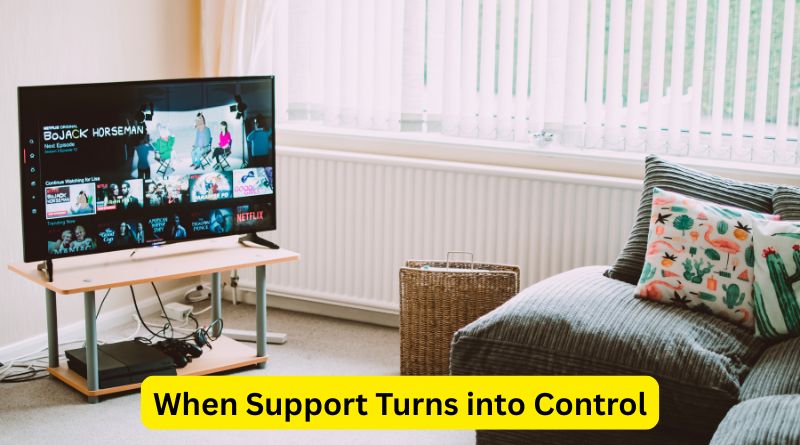It is natural to want to be there for a partner, offering encouragement, advice, and a sense of stability. In healthy relationships, support helps both people grow and navigate challenges together. But sometimes, what appears to be genuine care can slowly become something restrictive. Brandon Wade, founder of Seeking.com and an advocate for self-aware, intentional relationships, recognizes that understanding the difference between support and control is essential for maintaining a balanced connection.
Recognizing these shifts early helps prevent emotional dependency, loss of autonomy, and unhealthy power dynamics. By learning to identify the subtle ways control can disguise itself as concern, individuals can protect their ability to make decisions that align with their values and goals.
The Fine Line Between Care and Control
Support and control can sometimes look similar on the surface. A partner may offer advice, check in frequently, or try to help with decisions. When rooted in respect and trust, these actions can foster closeness. But when they cross into monitoring, limiting choices, or making decisions on your behalf, they become controlling behaviors.
A key distinction lies in whether the behavior encourages you or restricts you. Support encourages independence and confidence, while control often fosters doubt and dependency.
Early Signs That Support Is Becoming Restrictive
Controlling behaviors often begin subtly. They may appear as an insistence on always knowing where you are, questioning your friendships, or offering help that you did not ask for. Initially, these actions might feel protective or caring. Over time, however, they can create a dynamic where you feel you must get approval before making everyday decisions.
Other signs include a partner discouraging activities they do not enjoy, making negative comments about people in your life, or framing their control as “just looking out for you.” While some of these behaviors may be unintentional, their impact can still undermine your independence.
When Good Intentions Mask Control
Not all controlling partners act out of malice. Sometimes, fear of losing the relationship or personal insecurity drives them to overstep. They might justify their behavior as wanting the best for you, but the result can still be limiting.
For example, suggesting career changes, discouraging certain clothing choices, or insisting you spend free time together can seem harmless at first. The problem arises when these “suggestions” leave little room for your preferences and choices.
Safety and Autonomy Go Hand in Hand
A truly supportive relationship makes space for individuality. As Brandon Wade explains, “When people feel safe to be themselves, connection becomes natural, and love has room to grow.” Feeling safe means being able to express opinions, pursue interests, and maintain relationships without fear of judgment or control.
When support comes from a place of trust, it nurtures both the relationship and the individual. It allows each partner to be their authentic self while still feeling connected and valued.
The Emotional Impact of Control Disguised as Support
When control hides under the guise of care, it can leave a person second-guessing their judgment. Over time, this can erode self-esteem and make it harder to trust oneself. The constant feeling of needing permission or approval can also lead to isolation, as you may avoid situations that could lead to conflict.
This dynamic can be particularly damaging when paired with dependency, where one partner begins to rely heavily on the other for decision-making. While dependency may seem like closeness, it often signals a loss of balance in the relationship.
Boundaries as a Protective Measure
Boundaries are essential in preventing supportive gestures from becoming controlling habits. Clearly communicating what you are comfortable with and respecting your partner’s boundaries in return helps maintain equality in the relationship.
Setting boundaries might include agreeing on how much time is spent together, deciding which decisions are shared, and maintaining personal space and privacy. When boundaries are respected, support stays healthy and mutual.
Distinguishing Supportive Feedback from Restrictive Demands
Feedback in a relationship is inevitable. The difference between helpful advice and controlling instruction often comes down to tone, intention, and choice. Supportive feedback is offered without pressure, leaving the final decision in your hands. Controlling feedback demands compliance and frames disagreement as a personal failure.
If you feel you cannot disagree without facing anger, withdrawal, or guilt-tripping, the behavior has likely crossed into control. Support should encourage exploration, not impose limits.
The Role of Self-Awareness in Preventing Control
Self-awareness helps you recognize when support is encouraging and when it is taking away your independence. It also enables you to reflect on your actions toward your partner. Without realizing it, you may adopt controlling habits under the belief that you are “helping.”
Brandon Wade’s Seeking.com promotes this kind of intentional awareness, encouraging people to be honest about their needs, expectations, and behaviors. When both partners share this awareness, relationships are more likely to remain balanced and respectful.
How to Address Control When It Appears
When you notice controlling behavior, it is important to address it early. Begin with a calm, clear conversation about how certain actions make you feel. Focus on specific examples and explain why they limit your independence.
In many cases, a partner may not realize their actions have crossed a line. If they respond with understanding and a willingness to change, the relationship can often shift back to a healthier dynamic. If the controlling behavior continues or escalates, it may be necessary to reconsider whether the relationship supports your well-being.
Choosing Relationships That Encourage Growth
The healthiest relationships are those where both people feel free to grow without fear of judgment or restriction. Support should build your confidence and expand your world, not narrow it.
It means being selective about the partners you choose and paying attention to how their “care” feels over time. In relationships guided by respect, encouragement comes without strings attached, and love flourishes alongside personal freedom.
Support Without Strings
Support is one of the most beautiful aspects of a relationship, but it must be given in a way that respects autonomy. When support becomes a method of control, it undermines trust and limits growth. Recognizing the difference ensures you can maintain both closeness and independence.
Brandon Wade’s Seeking.com is a place where intentional dating prioritizes authenticity, trust, and the space for individuals to thrive. True support allows partners to be themselves without fear, because love that encourages freedom is love that lasts.





